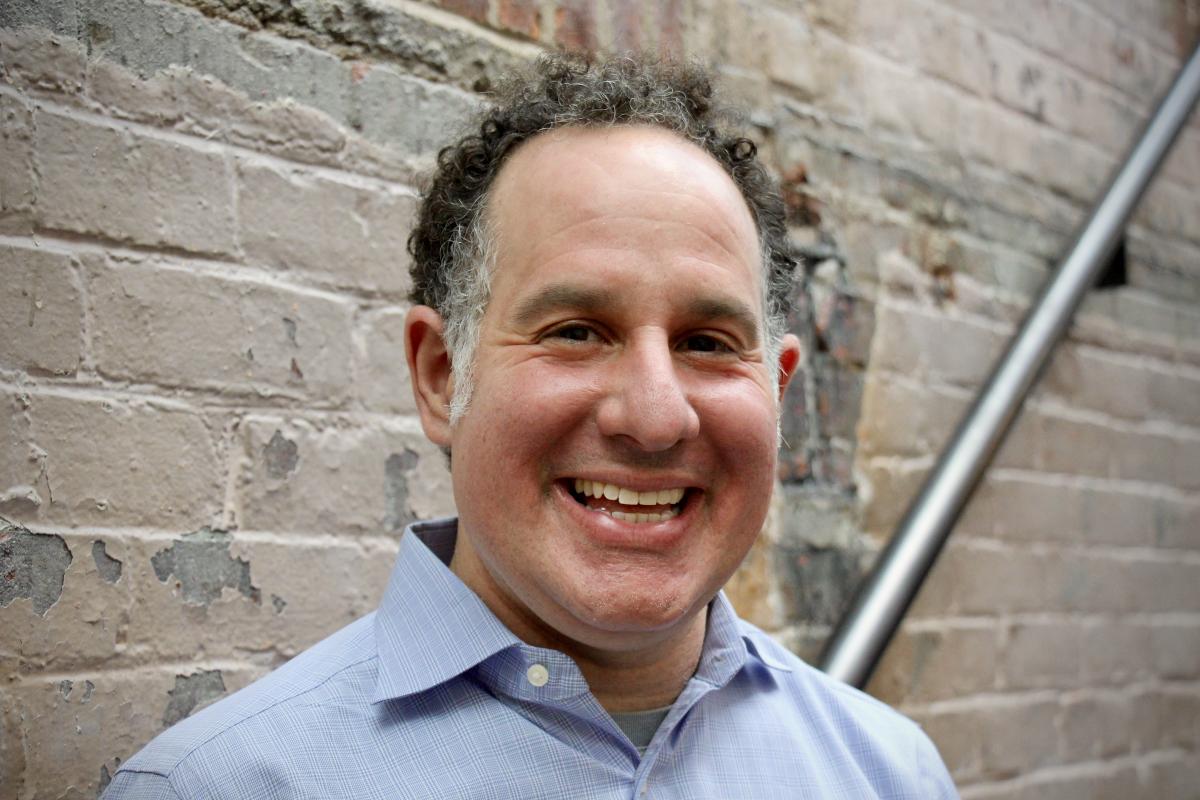STORY: Jonathan Adler featured on Podcast, Proxy with Yowei Shaw
In the most recent episode of Proxy, Jonathan Adler, professor of psychology, discusses narrative identity to help host Yowei Shaw’s guest embrace her inner monologue.
The podcast, named one of Apple's favorite podcasts of 2024 and charted at #7 in Science on Apple Podcasts, and #122 in Top podcasts in the world, finds experts who can help the podcast guests understand complex emotional issues. Continue reading to learn more about Adler’s research in narrative identity and how he applies his findings to STEM education.
What is narrative identity, and what inspired you to pursue research in that area of psychology?
Narrative identity is the story that weaves together our past as we reconstruct it, our present as we interpret it, and our future as we imagine it. We tell these stories to ourselves, privately in our heads, but then of course, we also share them with others. And there’s a vibrant interdisciplinary field of research focused on the ways in which narrative identity impacts our lives. I’ve always been interested in the way stories impact our lives. I’ve been a theater person since elementary school, but when I discovered that there was a field that uses the tools of science to understand the way stories impact our lives, I knew that was the kind of research I wanted to do.

Jonathan Adler poses next to a thought bubble sculpture in a field.
How can working on narrative identity help those in the STEM fields?
Ultimately, people in STEM fields are no different than other people, so we need to understand why the stories we tell about our lives matter for all the same reasons – these stories support our mental health, they help us make meaning out of our experiences, they help us make decisions about what to do with our lives. But I think people who go into STEM fields don’t always get as much practice doing that work as people in humanistic or artistic fields, where the content of the work is often more explicitly about the importance of thoughtful interpretation and creation of stories. So, I love working with people in STEM fields to help them develop strong narrative practice in their lives, too.
How do you use narrative identity in your courses, and how does incorporating this topic help students?
Narrative identity comes into basically everything I do at Olin, whether it’s focused on students, faculty, or staff. I teach a course every fall for first-semester students called “Identity from the Mind and the Brain” that invites them to think not only about what identity is, but also what kinds of evidence ought to count when we determine whether something is relevant to identity. I love the opportunity to give students some rigorous academic tools (from three different fields) for launching the identity projects that most of them embark on at the start of college. This fall I’ll be teaching two sections of the course, like I have several times before, which means a third of the first-year class will take it. But I also use narrative identity beyond the classroom. At Olin, Gillian Epstein, Associate Professor of English, and I co-run The Story Lab, where we put on two story slams each year and run workshops about storytelling. This week, we’re doing a workshop at Olin’s Summer Studio (for visitors from universities all over the world) that we’ve done a bunch of times. And we’ve also run story slams and workshops for other colleges and universities, non-profit organizations, and companies. Stories matter for all of us!

Narrative identity comes into basically everything I do at Olin, whether it’s focused on students, faculty, or staff.
I love the opportunity to give students some rigorous academic tools (from three different fields) for launching the identity projects that most of them embark on at the start of college."
Jonathan M. Adler
Professor of Psychology
What is the most interesting piece of information to emerge from your research?
Oh, it’s so hard to pick just one! I guess from my perspective, the key insight that our field of research has to offer is that you are not only the main character in your life story, you are also the narrator, and the way you tell your story really matters for your mental health. Unlike some aspects of our personality, you have more control over your narrative identity, so being an intentional self-narrator is a meaningful personality intervention.
Are you working on any exciting projects that you can share?
Yes! I was on developmental leave (sabbatical) this past academic year, in a fellowship at Wellesley, working on a book that will be published by Penguin Random House. The book is tentatively titled “Identity Theft: Who We Are and Who We Might Become.” It focuses on really extreme examples of people who lose narrative authority over their life story. People who get put in the Witness Protection Program, or get edited into reality TV villains, or whose body becomes transformed in dramatic ways. These extreme stories help us really see how narrative identity works and invite us to think about what kind of self-narrator we want to be. And, I hope the book will also help catalyze a cultural conversation about the role of identity in our lives and how we might think about it in ways that lead to less polarization. Working on the book has been incredibly engaging, and I’m looking forward to sharing more about it with the Olin community as we get closer to publication!
Want to listen to the podcast?
Listen to the most recent Proxy episode by clicking the link below.
Click here